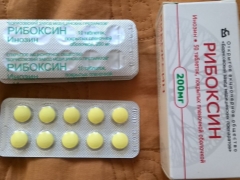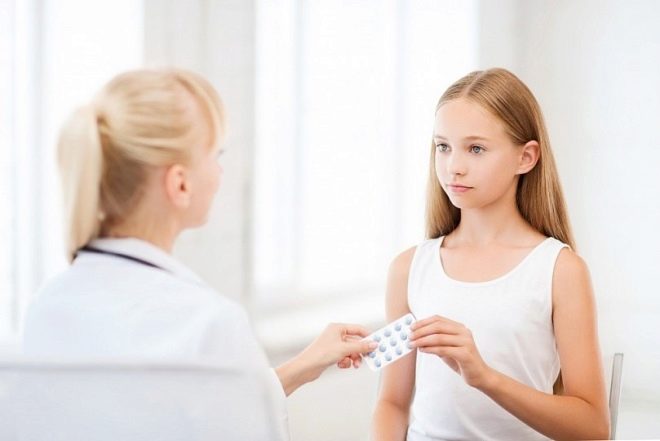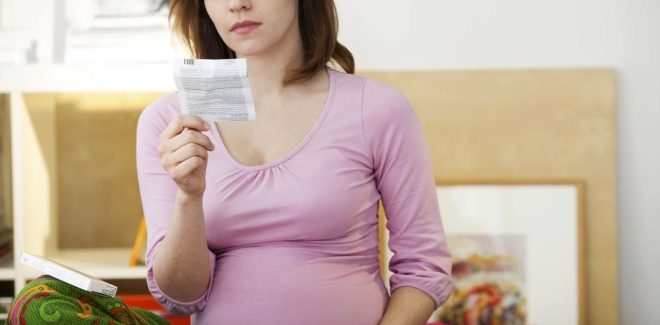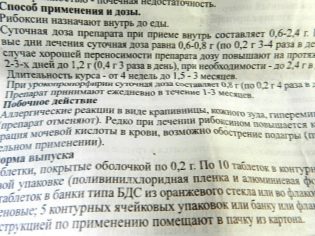Riboxin for children: instructions for use
Riboxin is a drug that, by improving tissue metabolism, has a wide range of uses. In particular, the drug has an antihypoxic effect, is effective in the treatment of arrhythmias, stimulates tissue repair during ischemia. The active substance, inosine, is related to the human body as it is a part of RNA.
How does it work?
In pharmaceuticals, inosine is considered to be the precursor of ATP - adenosine triphosphate. This definition means that inosine is necessary for the synthesis of ATP, and without it, such processes as glucose metabolism and the so-called tissue respiration — the saturation of cells of various tissues with oxygen — cannot adequately proceed in the body. Moreover, the condition of the tissues improves, even if for some reason oxygen is not sufficiently supplied.
The fact is that inosine activates substances in cells that are capable of decomposing glucose into carbon dioxide and water without oxygen, or with a small amount of oxygen. In addition, the splitting of glucose releases additional energy. Tissues receive additional energy feed, it helps the internal organs to function normally.
Therefore, when using Riboxin in patients, there is a significant improvement in metabolism. The drug also improves the regeneration of heart tissue. This is important, for example, in the rehabilitation after myocardial infarction, as well as in the medical treatment of arrhythmias. Riboxin increases the strength of heart contractions. This is an important parameter of the work of this body.
In pharmacies, this drug is sold under the brand name "Riboxin", although it is produced by various manufacturers. This popular remedy is prescribed for cardiovascular diseases, for example, to prevent thrombosis. And although this drug is widely used in adults, it is used less frequently in pediatrics, for example, if a child is undergoing radiation therapy for cancer.
For its use in the treatment of children says good tolerability and safety.
Indications
Usually, Riboxin is prescribed only from the age of 18, but according to individual indications and only on prescription of a doctor, in some cases this drug is used at an earlier age. However, childhood is not an absolute contraindication to the drug. So, in children older than 12 years, the drug is used only after a thorough assessment of the balance of benefits and risks. In exceptional cases, Riboxin is used in children from 3 years and even infants.
In the latter case, the liquid dosage form of the drug is used. The general formula for indications for use in young children and infants is the same: if the risk of developing the disease outweighs the potential harm from the medication.
Riboxin is prescribed to children only under medical supervision.
The drug is also often prescribed to pregnant and lactating women. During pregnancy, inosine contributes to the oxygenation of cells in the tissues of the mother and fetus, which prevents their hypoxia, and also helps beneficial substances to better reach the tissues of the mother and child.
Sometimes a woman who took Riboxin during pregnancy, being sure of its safety, gives it to the child as a “vitamin.” Doctors categorically do not recommend doing this.
The effect of inosine on the child's body is not fully understood, so it is prescribed to kids only in exceptional cases, taking into account the clinical picture of the disease.
Contraindications and side effects
The absolute contraindication to taking Riboxin is the individual intolerance of its constituent components. This, for example, potato starch, cellulose derivatives, aluminum - it enters the dye pigment of the tablet shell. The tablet also has sugar, which must be considered if the child has diabetes. The solution for injection also contains excipients.
Do not take this drug if renal failure is diagnosed. In this state, the kidneys partially or completely lose the function of urine production, and inosine is eliminated from the body with it. With hyperuricemia - high blood levels of uric acid, Riboxin is also not prescribed. According to some studies, this disease occurs in 3% of children. Therefore, when taking child Riboxin, it is necessary to control the level of uric acid in the blood.
When taking the drug, the child may have itchy skin, as well as skin flushing, i.e. localized redness caused by an increase in blood flow to this area.
Forms of release and dosage
Riboxin is available in the form of yellow tablets and red capsules of 200 and 300 mg and a two percent solution for injection in 10 and 20 ml ampoules. In pill form, the drug is taken orally, i.e., through the mouth after a meal.
From the age of 14, a dose of medication is prescribed the same as an adult. Children older than 12 years are usually prescribed 2-3 times a day with a small dose, and if the drug is well tolerated and the side effects do not manifest, the doctor gradually increases the dosage in accordance with the child's illness, his general condition, analysis of blood parameters and other factors. The usual daily dose of the drug is 0.6-2.4 mg.
Children under 12 years of age, the daily dose of inosine is calculated according to body weight, based on the calculation of 10–20 mg per 1 kg of weight. This dose is usually divided into 2-3 doses. Young children and babies are difficult to swallow tablets and capsules. Therefore, you can open the capsule, get them the necessary amount of white powder and make it a solution by mixing with a small amount of water. However, this method is not encouraged by doctors, because it is very difficult to accurately calculate how much powder to give to a child.
The solution for injection can be administered either intravenously - using a syringe or dropper, or intramuscularly. Intravenous administration provides a faster effect of the drug, therefore it is used in emergency cases and in the hospital. At home, the child is easier to give a pill, if necessary, crushing it.
As prescribed by the doctor, children can receive Riboxin for 4 to 12 weeks.
Reviews
Reviews of parents indicate that despite the fact that the instructions for use of the drug say that children need to use the medicine with caution, doctors sometimes prescribe the drug even to kids 6 years and under who do not suffer from cardiovascular or other diseases.
Therefore, even if the pediatrician prescribed this drug, it is still worth consulting with a cardiologist. There are cases when a narrow specialist cancels such an appointment. At the same time, if there is evidence, Riboxin gives good results in the treatment of children.
For more detailed instructions on the use of Riboxin, see the following video.



















